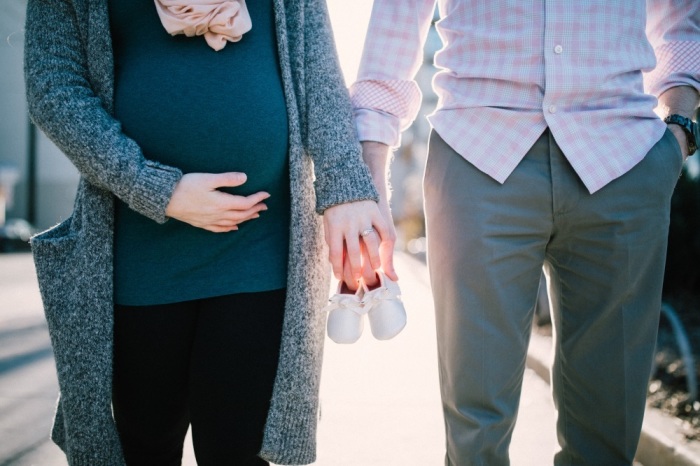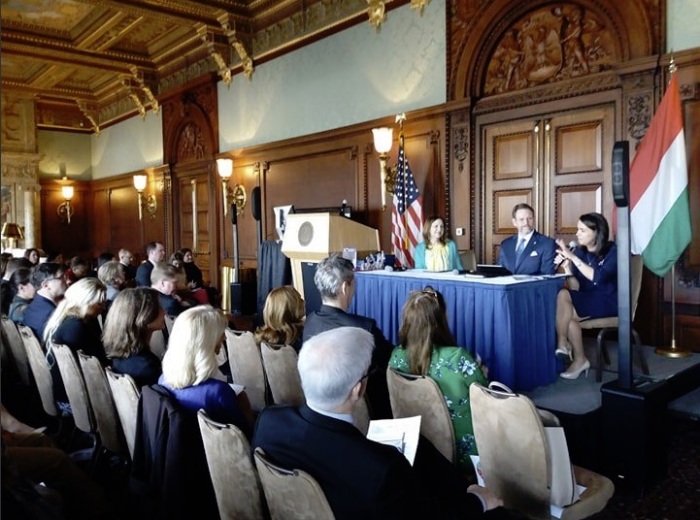'Make Families Great Again': Hungary seeing more babies, fewer abortions through pro-family policies

White House officials, Republican members of Congress and evangelical leaders gathered Thursday for “Making Families Great Again,” a conference on family policy hosted by the Hungarian Embassy at the Library of Congress in Washington, D.C.
Led by President Viktor Orbán’s Fidesz Party, Hungary has become a poster child for passing nationalist pro-family policies over the last several years.
With nearly a decade-worth of data, Hungarian officials claimed Thursday that policies instituted over the last several decades that have incentivized marriage and childbirth have helped boost marriage and birth rates in Hungary at a time many countries struggle with those issues.
“I was very proud to be a minister here and hearing from our American friends how much they admired the Hungarian family policies,” Katalin Novák, the Hungarian minister of state for family, youth and international affairs who gave a keynote address at the event, told The Christian Post in an interview.
“They say that Hungary can be a role model for them in this issue. They said that we can show an example to the rest of the world for pro-family issues.”

Hungary’s birth rate fell below replacement level decades ago and the nation has struggled to repopulate. Unlike some of its European counterparts that have relied on immigration to boost population totals, the Orbán government has made clear that it does not view mass immigration as the answer.
Rather, the administration believes the answer is to ensure that Hungarian citizens have all the incentives they need to build large and happy families.
Today, the Hungarian government spends nearly 5 percent of its GDP towards incentives for those in the predominantly-Christian nation to get married and have children — lots of them.
Through policies, subsidies and extensive tax reductions enacted since Orbán regained power in 2010, some parents are eligible to receive the equivalent a grant of about $36,000 to help pay a home mortgage, and the equivalent of about $9,000 from the government toward a seven-seater vehicle if they have the required number of children.
The list of incentives and benefits for parents in Hungary is quite extensive and includes things like a state-financed daycare system, three years of paid parental leave, free kindergarten, subsidized vacations, assistance paying off student loans, vacation benefits and exemption from income tax for mothers with four or more children.
According to Novák, Hungary has seen positive results spanning from the time Orbán retook control of the government in 2010.
From 2010 to 2018, she says, marriage rates in Hungary have increased by 43 percent (the highest number in 20 years), divorce rates have decreased by 22.5 percent, fertility has increased by 21 percent (highest in 20 years) and abortion has decreased by 33.5 percent.
This has happened as birth rates continue to slip in countries across the developed world, particularly in Central and Eastern Europe.
“These numbers and figures, they speak for themselves,” Novák assured. “[C]ompare it to the socialist trends, the left-liberal government.”
Participants in the conference included White House director of strategic communications Mercedes Schlapp, President Trump’s special assistant on domestic policy Kathryn Talento and Health and Human Services senior policy advisor Valerie Huber.
The event also included Reps. Chris Smith, R-N.J., Andy Harris, R-Md., Paul Gosar, R-Ariz and Jeff Fortenberry, R-Neb.
Others included Family Research Council President and USCIRF commissioner Tony Perkins, former White House advisor Sebastian Gorka, American Conservative Union Chair Matt Schlapp and as Emilie Kao, the director of the Heritage Foundation's DeVos Center for Religion & Civil Society.
“We are working closely with the U.S. administration on family issues. They would also like to get some detail on our pro-family policies and the measures that we have introduced in the last nine years,” Novák, who is also the vice president of the Fidesz Party explained.
“We can already see in the new budget actually just introduced recently in the U.S. that it already has some important elements regarding pro-family measures. There are already important steps taken and we can see in President Trump’s speeches as well, he thinks it is very important that pro-family and pro-life values should be represented.”
Follow Samuel Smith on Twitter: @IamSamSmith
or Facebook: SamuelSmithCP





























